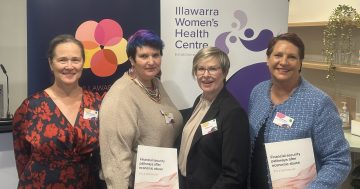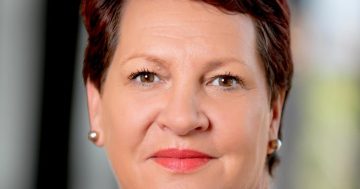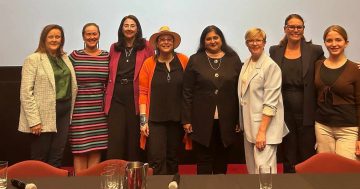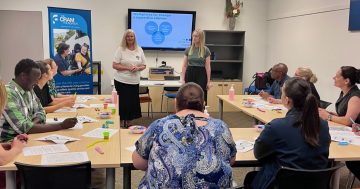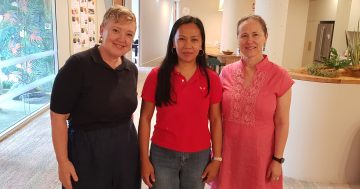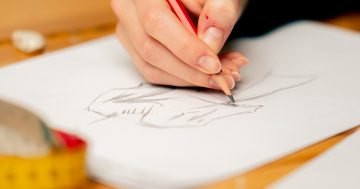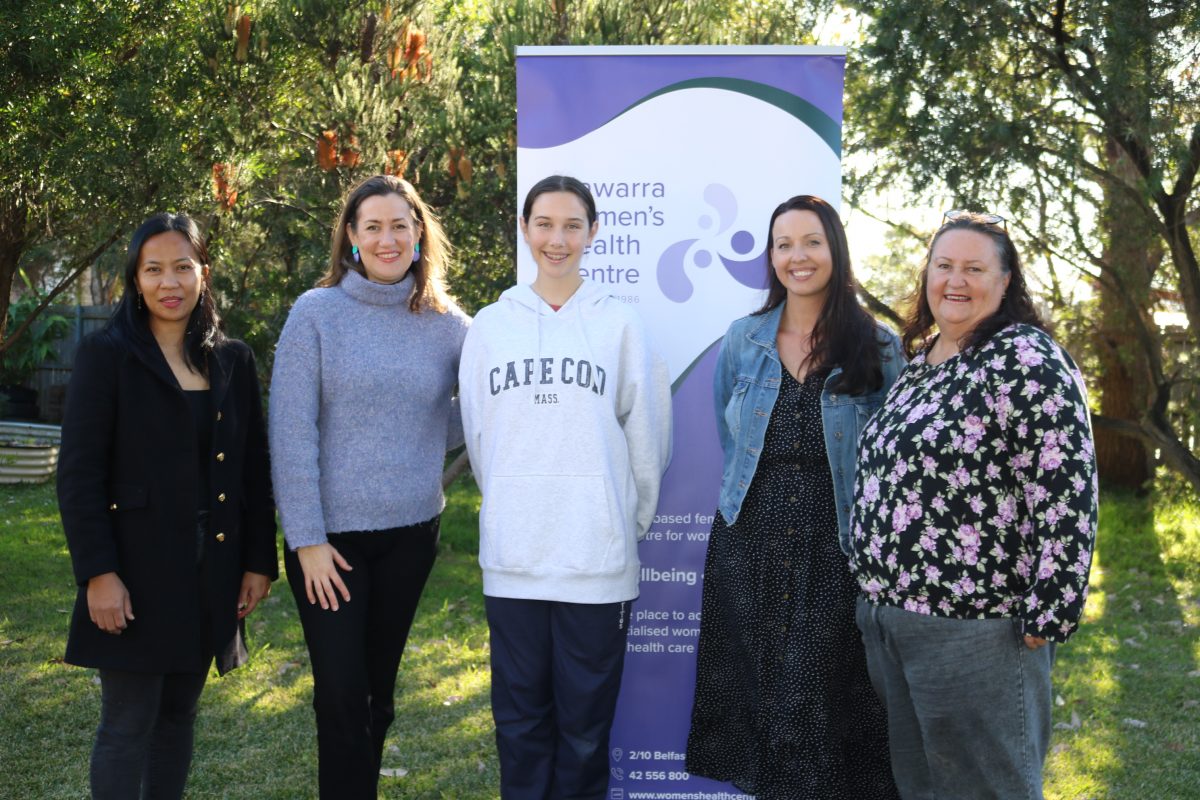
Supporters and staff at the launch of Illawarra Women’s Trauma Recovery Centre’s Experience into Expertise program (from left): Faith, Director Lula Dembele, Alyssa, Client Support manager Miranda Batchelor and lived experience advocate Jane Matts. Photos: Jen White.
An Australia-first program developed in the Illawarra will help victims of domestic, family and sexual violence use their experience to build new skills to advocate for change in the community.
The Experience into Expertise advocacy program will be co-designed and delivered by victim survivors and run by the Illawarra Women’s Trauma Recovery Centre, itself an Australian first.
Earlier this month, the Federal Government handed $25 million to the Illawarra Women’s Health Centre to develop and operate the Trauma Recovery Centre.
The advocacy program will provide training and guidance for about 60 people over three years to use their lived experience of domestic, family and sexual violence to help develop advocacy campaigns and work with government, research, policy and law reform.
Trauma Recovery Centre Director Lula Dembele said victim survivors knew first-hand what they needed to be safe.
“There is no group of people more motivated to ensure that these types of abuse do not happen to others,” she said.
“This program draws on the knowledge of survivor advocates who have been at this work for many years,” Lula said.
“It’s really saying, how do we take our lived experience and turn that into an expertise skill set? To take that expertise that we have, to make people allow us the space and give us the places at decision making, whether that be about speaking about the experience of domestic family violence, or whether that be about the services that we deliver.”
Lula said victims often felt that despite their lived experiences, they weren’t seen as equals to academics, experts and services in the sector.
“We’ve found over the years of using our lived experience and becoming survivor advocates that too often we’re left with the short stick. And we’re the ones who were asked to delve into our most personal experiences,” she said.
“We’re not seen as equal to the people who are academics and experts in this arena, we’re not even seen as equal to the people who run the services who are supposed to be supporting us.
“We’re trying to change those attitudes and make sure that victim survivors and those with the contextual expertise are really driving the solutions that we need as a community, as a state and as a nation to end domestic family and sexual violence.”
Among those at the launch of the program on Monday (19 June) were women who are helping to co-design the Trauma Recovery Centre’s interim site.
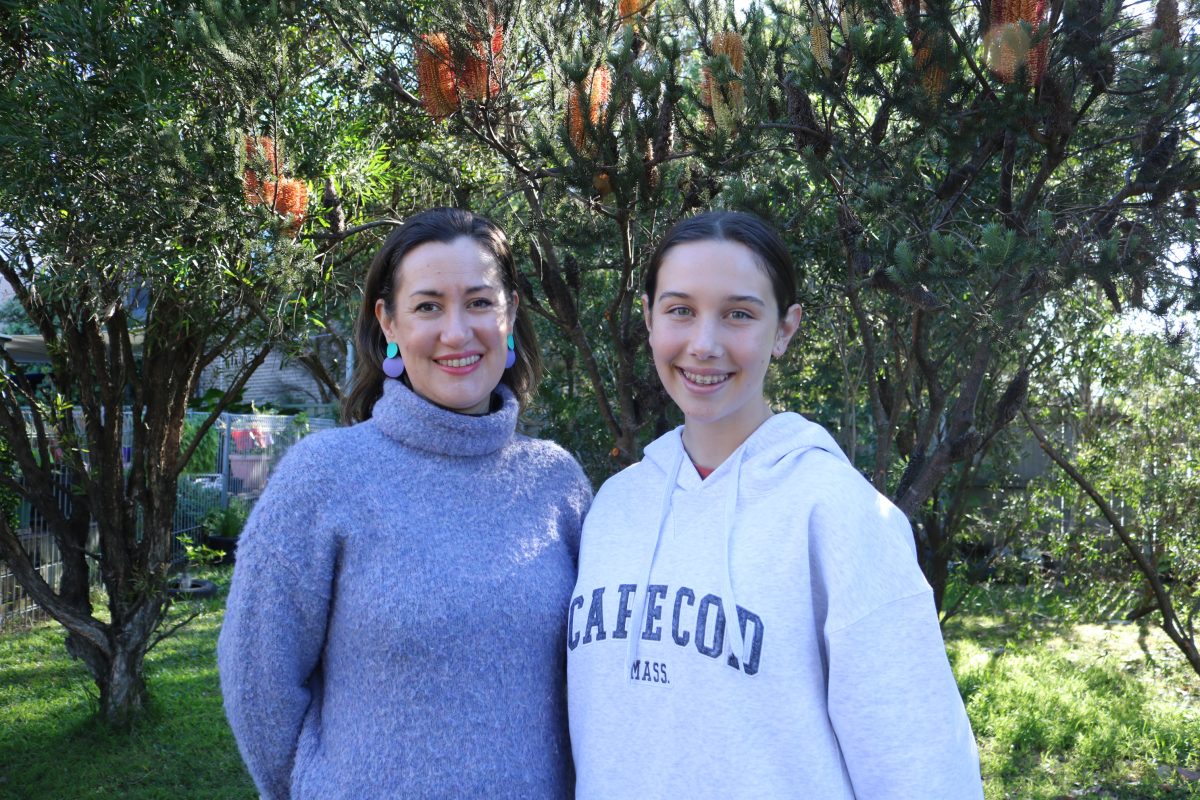
Lula Dembele with youth advocate Alyssa at the launch.
Representing the youth voice was 16-year-old Alyssa, who describes herself as a “massive advocate” for the needs of young people and their future.
“We have a lot of opinions that aren’t heard, and different perspectives that are really important and should be just as valued as everyone else’s,” she said.
“It’s great that this group has given us the opportunity and is deliberately listening to youth voices.”
Lula said it was key that children and young people were seen as victims in their own right, and had their own needs.
“By bringing in young people like Alyssa, we’re able to ask them, what would you need from this environment, how would you want to be treated, what opportunities are there that need to be heard by parliamentarians, what needs to change in our education system.
“It’s been wonderful to have young people involved and we’re really concerned that they get to be heard and that in designing something new, we don’t accidentally silence the voices of young people.”
South32 Illawarra Metallurgical Coal is providing $300,000 over three years to support the design, delivery and evaluation of the new program. South32 is the Trauma Recovery Centre’s foundational corporate partner, providing funding to support the centre’s establishment.
Vice President Operations Peter Baker said South32 was continuing to work with communities to raise further awareness of gender-based violence and help prevent it from happening.
“Sadly, gender-based violence remains far too common,” he said.
“The Women’s Trauma Recovery Centre will undertake vital work supporting those impacted by gender-based violence and helping them step-by-step through what can often be a long process of recovering from that trauma.”









